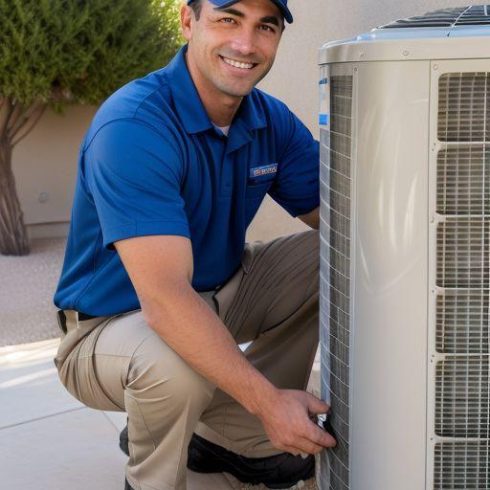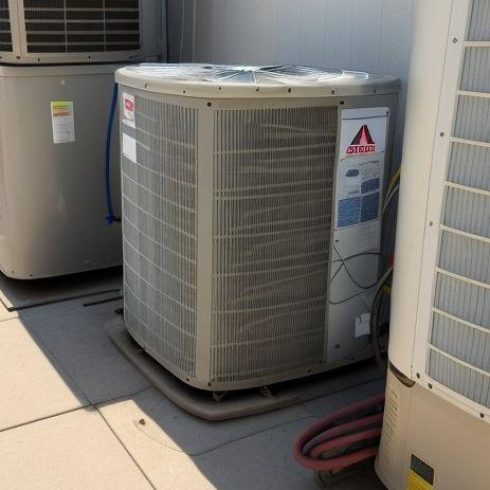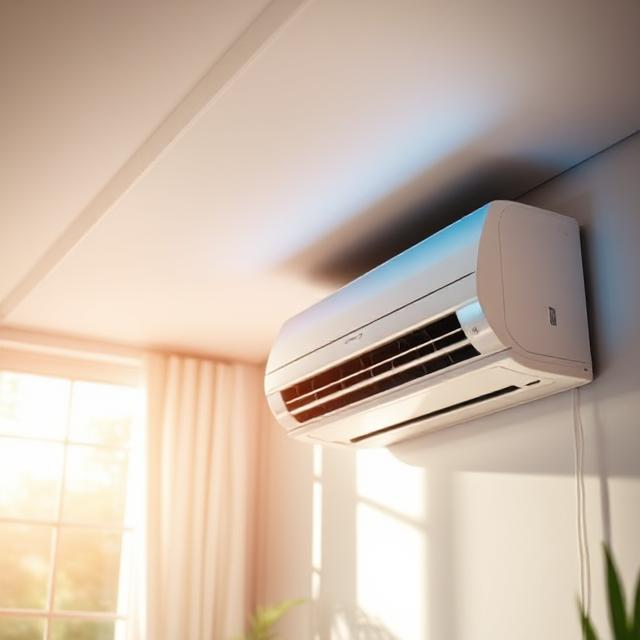How Do I Know If My AC Is Low On Freon?
Introduction
As summer approaches in Palm Desert, CA, many homeowners rely on their air conditioning systems to keep their homes comfortable. However, one common issue that can arise is low Freon levels. This article will guide you on how to determine if your AC is low on Freon and what steps to take next. We’ll also explore the importance of having a reliable HVAC contractor near you for maintenance and repairs.
What is Freon?
Freon is a brand name for a type of refrigerant used in air conditioning systems. It plays a crucial role in the cooling process by absorbing heat from inside your home and releasing it outside. Without adequate Freon, your AC system cannot effectively cool your space.
How Do I Know If My AC Is Low On Freon?
If you're wondering how do I know if my AC is low on Freon, there are several signs to watch for:
- Warm Air Blowing: If your AC blows warm air instead of cool, it might indicate low Freon levels.
- Ice Formation: Ice on the evaporator coils can signify low refrigerant causing the system to freeze up.
- Increased Energy Bills: An unexpected spike in energy costs may point to an inefficient cooling system due to low refrigerant.
- AC Running Continuously: If your unit runs longer than usual without adequately cooling the space, it may be struggling due to insufficient Freon.
Signs Your AC Needs Attention
1. Warm Air from Vents
When you set your thermostat lower but only get warm air, it’s time to investigate further.
2. Ice Buildup
Look for ice on your outdoor condenser or indoor coils. This indicates that something's not right with the refrigerant flow.
3. Unusual Noises
Hissing or bubbling sounds could mean a refrigerant leak.
4. High Humidity Levels
An inefficient AC can leave humidity in the air, making your home feel muggy.
5. Frequent Cycling
If the system keeps turning on and off rapidly, it could be Anthem Air Conditioning & Plumbing Palm Desert due to low refrigerant levels affecting its operation.
Why Low Freon Levels Occur
Freon doesn't evaporate like water; however, leaks can occur due to wear and tear or damage in the system's components. Here are some common causes:
- Corrosion: Over time, copper lines can corrode and develop tiny leaks.
- Poor Installation: If an HVAC technician didn’t seal connections properly during installation, leaks might form quickly.
- Accidental Damage: Physical damage from maintenance work or landscaping activities can cause refrigerant lines to break.
What To Do When You Suspect Low Freon
If you suspect that your AC unit may have low Freon levels, here’s what you should do:
Is It Safe To Recharge Your Own AC?
While some people consider recharging their own AC units with Freon, it's usually best left to professionals. Improper handling of refrigerants can be hazardous and could lead to more significant problems down the line.
The Role of an HVAC Contractor Near Me
Finding a trustworthy HVAC contractor near you is essential when dealing with issues like low Freon levels. Here’s why:
- Experience Matters: Professionals know how to handle different makes and models efficiently.
- Diagnostic Tools: Technicians use specialized equipment to detect leaks that homeowners may miss.
- Safety First: They ensure all processes comply with safety regulations regarding refrigerants.
How To Choose The Right HVAC Contractor
1. Check Reviews
Look for contractors with positive customer feedback online.
2. Verify Licensing
Ensure they hold proper licenses and insurance required in California.
3. Ask About Experience
Find out if they have experience working with similar issues as yours.
Preventative Maintenance Tips for Your AC System
Regular maintenance helps reduce the chances of running into issues like low Freon levels:

- Change filters frequently.
- Clean debris around outdoor units.
- Schedule annual inspections with an HVAC contractor near me.
DIY Checks Before Calling a Professional
You can perform some simple checks before contacting an expert:
Do You Need A Permit For Refrigerant Work?
In Palm Desert, CA, working with refrigerants typically requires permits due to environmental regulations aimed at preventing harmful gas emissions from leaking into the atmosphere.
Frequently Asked Questions (FAQs)
1. How often should I check my AC's Freon levels?
You should have your system checked at least once a year during routine maintenance visits by an HVAC contractor near me.

2. Can I add more Freon myself?
Adding refrigerant yourself isn't recommended due to safety risks and potential legal implications regarding handling chemicals improperly.
3. What happens if I run my AC without enough Freon?
Running your unit without adequate refrigerant can lead to compressor failure, which is costly to repair or replace.
4. How much does it cost to recharge my AC with Freon?
Costs vary based on local rates but expect anywhere between $100-$300 for service calls involving recharging refrigerants by professionals.
5. Can I detect a leak from my AC system?
While some signs are visible (like oil spots), detection usually requires specialized tools used by certified technicians.
6. What should I do if my AC freezes up?
Turn off the unit immediately and allow it time to thaw before calling an HVAC contractor near me for further evaluation.
Conclusion
Understanding how do I know if my AC is low on Freon will help you keep your home comfortable during those hot Palm Desert summers! Always keep an eye out for warning signs such as warm air blowing through vents or ice forming on coils—these are clear indicators something needs attention! Regular maintenance checks performed by qualified HVAC contractors near you will ensure that any potential issues are caught early before they turn into major headaches down the road!
